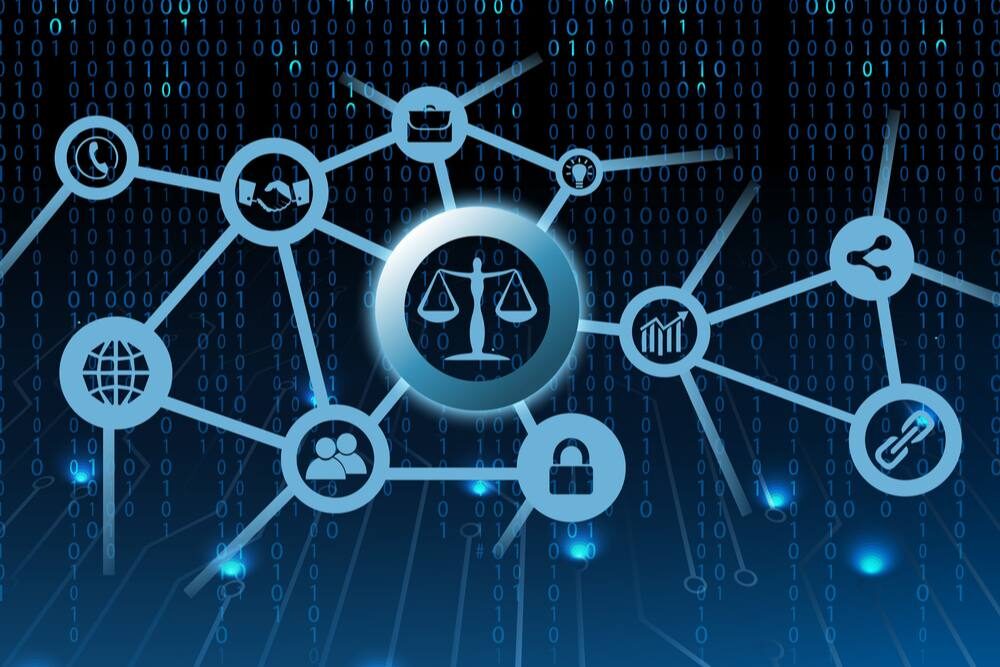In a rapidly evolving digital landscape, the legal industry is undergoing groundbreaking transformations. Emerging technologies like blockchain and video integration are redefining how contracts are created, executed, and managed. This shift from traditional contract handling to innovative digital solutions promises increased security, transparency, and efficiency in the legal field. For businesses, lawyers, and clients alike, these advancements represent a leap forward in reliability and accessibility for legally binding agreements.
1. The Evolution of Contracts in the Digital Age
The traditional approach to contract management often involves significant paperwork, manual signing, and complex validation processes. While these methods are well-established, they’re not without drawbacks. Manual processing is susceptible to human error, can be time-consuming, and often lacks real-time tracking, which can delay contract execution.

As a result, the legal sector has started embracing blockchain technology and video integration to modernize the contract process. These innovations are bringing about modern legal solutions that improve both the speed and security of transactions, ultimately enhancing trust among parties.
2. Blockchain Technology and the Immutability of Contracts
Blockchain technology has become a game-changer in many industries, and its potential in the legal sector is immense. For contracts, blockchain introduces a layer of immutability — the concept that once a contract is recorded on a blockchain, it cannot be altered without leaving a trace. This makes blockchain-based contracts far more secure than traditional ones, as they are resistant to tampering and fraud.
Immutability is particularly advantageous for industries requiring high levels of security and trust, such as finance, real estate, and healthcare. Legal contracts executed on blockchain are recorded across a decentralized network, making it nearly impossible to alter the original content. This feature ensures that authenticity of contracts is maintained and builds confidence in the contractual relationship.
3. Smart Contracts: Automation and Efficiency
At the core of blockchain-based legal solutions are smart contracts — self-executing contracts with the terms directly embedded into code. Smart contracts are designed to automatically execute or enforce actions when specific conditions are met. For instance, in a property sale, once the payment is received, ownership is automatically transferred to the buyer, eliminating the need for manual intervention.
Smart contracts reduce human error, minimize delays, and increase overall security in legal contracts by eliminating the potential for manipulation. Additionally, smart contracts foster innovation in contracts, offering a fully automated and transparent solution that’s far more efficient than traditional paper-based methods.
4. Enhanced Security and Transparency in Contracts
Security and transparency are critical in the legal sector. Traditional contracts may face risks related to forgery, unauthorized access, and tampering. By contrast, contracts on blockchain are stored on a secure, decentralized ledger, where each transaction is validated and recorded across a network of computers. This system not only protects against unauthorized access but also promotes transparency in contracts by providing a visible and unalterable record of all contractual activities.
Blockchain’s decentralized nature means there is no central authority that can alter contract records. Every participant in the blockchain network has access to the same information, which enhances accountability. This digital contract management ensures that all parties involved are on the same page regarding contract details, timelines, and milestones.
5. Video Contracts: Personalized and Accessible Solutions
While blockchain secures the authenticity and immutability of contracts, video technology adds a personalized and accessible touch. Video contracts enable parties to discuss, negotiate, and agree to terms virtually, making the contract process more adaptable and efficient. Video-based contract management is particularly valuable for clients who prefer face-to-face interactions or for international parties who cannot meet in person.
Through personalized video contracts, lawyers and clients can ensure that each party fully understands the contract terms before signing. Video recordings of contract discussions or clarifications can be added to the digital contract, providing additional layers of security and transparency.
6. Blockchain and Video Integration: A Seamless Contract Execution Process
The integration of blockchain and video technology has created a digital contract platform that offers a seamless, end-to-end solution for the legal industry. Contract execution on blockchain becomes straightforward as all actions and agreements are recorded transparently and immutably, while video allows for personalized explanations, walkthroughs, and confirmations.
This combination not only simplifies the contracting process but also ensures that contracts are legally enforceable and verifiable. Using blockchain, it’s possible to ensure the authenticity of contracts in real-time while enabling lawyers and clients to confirm, modify, or clarify contract clauses through recorded video. This holistic approach is proving to be a modern legal solution that meets the demands of a digital-first world.
7. Real-World Applications of Blockchain and Video in Legal Contracts
Several industries have already started using blockchain and video technologies to handle contract management more effectively. For example, in real estate transactions, parties can execute smart contracts that automatically transfer property ownership upon payment completion. In the healthcare industry, consent forms and contracts with medical professionals can be securely managed, ensuring the security in legal contracts related to sensitive patient data.
In financial services, digital contract management allows for quick and efficient creation of financial agreements, where every step of the process is transparent, secure, and automated. This approach eliminates the need for costly intermediaries and reduces the risk of contractual disputes.

8. Future Prospects: Blockchain and Video in Legal Innovations
The combination of blockchain and video technology is paving the way for further advancements in the legal industry. As these technologies continue to evolve, blockchain in the legal sector is likely to become a staple in contract management, with potential extensions into areas such as arbitration, dispute resolution, and compliance monitoring.
Video contracts are also set to become a popular medium for legal communications, providing both flexibility and enhanced security. Whether for corporate contracts, financial agreements, or service level agreements, video technology paired with blockchain’s secure foundation offers unparalleled transparency in contracts.
Conclusion
From streamlining contract processes to enhancing security and transparency, blockchain and video technologies are driving a revolution in the legal industry. As blockchain technology becomes more mainstream, we can expect these innovations to redefine how contracts are managed and executed. Whether it’s through contracts on blockchain, video contracts, or a combination of both, the future of legal contracts is undoubtedly digital, secure, and accessible to all.



